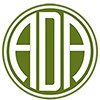ADA PROFILE AND BACKGROUND
Afghan Development Association (ADA) is a non-governmental, non-profit and non-political organization. It promotes and provides development and humanitarian services to the people of Afghanistan, in particular to the country’s rural population.
ADA was established in 1990 with a mission to provide emergency aid and humanitarian assistance to Afghan refugees in Pakistan. ADA now operates solely in Afghanistan and over the years it has transformed itself into the one of Afghanistan’s foremost development NGOs, although it continues to respond to natural and conflict-related emergencies in the country. ADA endeavours to reach the most disadvantaged groups in Afghan society often under very difficult circumstances. Among those with whom ADA works are: farmers, poor families, women, the unemployed and the uneducated, returning refugees, internally displaced persons (IDPs), disaster affected communities as well as a variety of community-based organisations.
With the ultimate goal of the eradication of poverty from Afghanistan, ADA has increasingly focused its interventions on contributing to more productive and sustainable livelihoods, particularly within the agricultural sector, and on strengthening basic education. Understanding that resolving conflicts at all levels of society is a prerequisite to successful development in Afghanistan, ADA has, in recent years, come to include community peacebuilding as a further focus of its activities.
Most of the Afghans are displaced due to conflicts and return of refugees in huge number to Afghanistan from neighbouring countries as a result of political pressures, restricted asylum policies, and other varies reasons. In addition, Afghanistan is highly susceptible to natural disasters such as earthquakes, landslides, droughts, avalanches and floods which destroy lives, homes and livelihoods. Therefore, ADA management has come to conclusion during general assembly to include humanitarian and disaster risk reduction as new thematic areas effective 3rd February 2020.
In order to promote long-term sustainable development at the community level, ADA employs a holistic and strongly people-centred approach in delivering projects. This means working across sectors with all community stakeholders, while prioritising the rights and needs of the poor. It also means strengthening the participation of our target groups in the planning, implementation and monitoring of ADA’s projects and the promotion of local ownership of both the development process and results. In order to maximise impact and scope, we also make full use of national NGO networks and will work in partnership with other NGOs to create added value. ADA is a member of ANCB (Afghan NGOs Coordination Bureau) and is also a long-standing member of ACBAR (Agency Coordinating Body for Afghan Relief and Development) and its steering committee.
Currently, ADA is implementing projects in various aspects of livelihoods strengthening, non-formal education, community peacebuilding, humanitarian and disaster risk reduction in the provinces of: Kabul, Takhar, Kundoz, Jawzjan, Faryab, Daikundi, Zabul, Kandahar, Uruzgan, Laghman, Kunar and Herat Provinces.
Core Values
PEOPLE-CENTRED
All that we do is based in our recognition of the inherent worth all individuals. We are committed to promoting equality among staff and the communities where we work and we strive to be inclusive and raise the participation of our target groups in our programmes and in their own communities.
EQUITY AND SOCIAL JUSTICE
We respect human diversity and are committed to combatting discrimination on any grounds, including age, disability, ethnicity, gender religion, and tribal affiliation. We work to affirm the human rights of all in order to ensure that everyone is afforded dignity and treated equally and with fairness.
INTEGRITY
We will always be true to our values and our mission, acting with honesty and transparency, while ready to be held accountable by our target groups and other stakeholders for all our actions and our use of valuable resources.
COOPERATION
We believe in the value of teamwork, both among our staff and with our stakeholders, as a means to achieve results, but also to promote trust and non-violence.
Strengths
Technically qualified, experienced and highly committed staff;
Efficient programme delivery;
Clear and appropriate policies and standard procedures in place;
Accountability and transparency, including good reporting to government, annual reports accessible to the public, and high quality reporting on results;
Strong relations with community and target groups;
Good reputation with public, government, and donors;
Teamwork and internal coordination, as well as cooperation with partners;
Significant field presence in remote and insecure areas and well-equipped offices.
